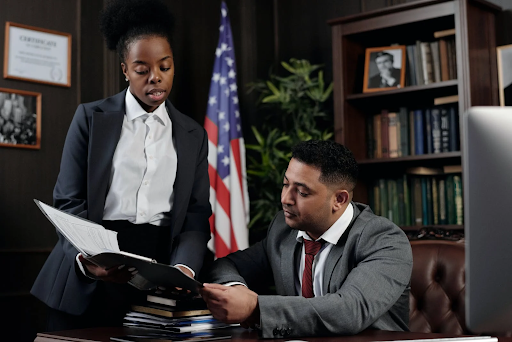Pursuing Compensation After an Accident: What You Need to Know
If you have been injured in an accident, you may be wondering what to do next. Pursuing compensation is likely at the top of your list, and rightly so. However, making a claim can be more complicated than you might think. There are a number of factors to consider, from the statute of limitations to evidence preservation. It’s important to understand the process of filing a claim and what you need in order to win. Here is what you need to know about pursuing compensation after an accident.
1. Work with a lawyer
The best way to protect your rights and maximize the amount of compensation you may receive is to work with an experienced attorney. A lawyer can provide legal advice and represent you in court if necessary. They will also be able to guide you through the claims process, answer any questions, and handle all negotiations on your behalf. According to NJ Injury Guys in Jersey City, NJ, working with a lawyer can make the process of filing for compensation much simpler, and the attorney will be able to represent your best interests. It’s important to choose an attorney you trust and feel comfortable working with.
2. Know the Statute of Limitations
When considering a personal injury lawsuit, it’s important to keep in mind the statute of limitations. This is the amount of time you have to file a claim after an accident, and it varies by state. It’s important to be aware of this timeline so that you don’t miss out on any potential compensation due to a late filing. If you are considering a personal injury lawsuit, it’s important to speak with an attorney as soon as possible in order to ensure you don’t miss any deadlines. It’s also important that you keep any paperwork and records of the accident, as these can be used in court to support your case.
3. Gather Evidence
Gathering evidence is key when filing for compensation after an accident. Be sure to collect as much relevant information as possible, including photos or videos of the scene, witness statements, police reports, medical records, and receipts for any expenses related to your injuries or damages incurred in the accident. In addition, make sure you keep track of your progress over time with medical records and other documentation from doctors or specialists. You may need this evidence to show how much you have suffered and any ongoing complications due to the accident.
4. Prove Negligence
In order to receive compensation, you will need to prove negligence was a factor in the accident. This means that someone must have acted in an irresponsible or careless way that resulted in the accident. To prove negligence, you’ll need to show that the person who caused the accident had a duty to take reasonable care but failed to do so and was therefore negligent. You may also need to provide evidence of how their actions directly impacted your injuries and any resulting damage. Also, be sure to keep a record of all communications with the party responsible for your injuries, as this can serve as evidence in court.
5. Calculate the Amount of Compensation
Once you have gathered all the necessary evidence and documentation, it is time to calculate the amount of compensation you may be owed. This will depend on several factors, such as medical expenses, lost wages, physical or emotional pain and suffering, and property damage. When determining the amount of money you are owed, take into account any insurance coverage that could help pay for your damages. It can be beneficial to speak with an attorney who is familiar with personal injury cases to ensure you are receiving a fair settlement from the liable party. An experienced attorney can also evaluate other forms of compensation that might be available to you.
6. File a Claim
Once you have gathered all the necessary evidence and calculated the amount of compensation you are owed, it’s time to file a claim. This will involve submitting the necessary paperwork and evidence to the responsible party, whether that is an insurance company, a business, or an individual. Negotiations may take place in order to reach a settlement agreement, but if no agreement can be reached you may need to go to court. If this occurs, it’s important to have an experienced attorney on your side who can provide valuable advice and represent you in court.
7. Get ready for court
If a settlement cannot be reached and your case goes to court, it’s important to prepare yourself. This includes doing research on the laws that apply to your particular case, understanding the type of evidence you will need to present in court, and gathering documents and witness statements that support your claim. Additionally, having an experienced attorney who is knowledgeable about personal injury law can help make sure you have all the necessary information before going to court. It’s also important to practice what you will say in court and to remain calm and composed while testifying.
8. Handle Insurance Companies With Care
When it comes to insurance companies, remember that they are in business to make money and will do whatever they can to pay out as little as possible. It’s important that you never give a recorded statement without consulting with an attorney first. Insurance adjusters are highly trained professionals, and the things you say can and will be used against you. Be courteous, but remain firm about your case. Inform them of how the accident has affected your life, such as medical bills, lost wages, pain, suffering, etc., but don’t agree to anything before speaking with an attorney who is familiar with personal injury law.

Pursuing compensation after an accident can be a difficult and overwhelming experience. However, understanding the steps involved and gathering the necessary evidence can help make sure you’re prepared for anything that may come your way. Remember to keep records of all conversations with insurance companies and to speak with an experienced attorney who is knowledgeable about personal injury law. With the right preparation, you can make sure you are getting the compensation and justice you deserve.
